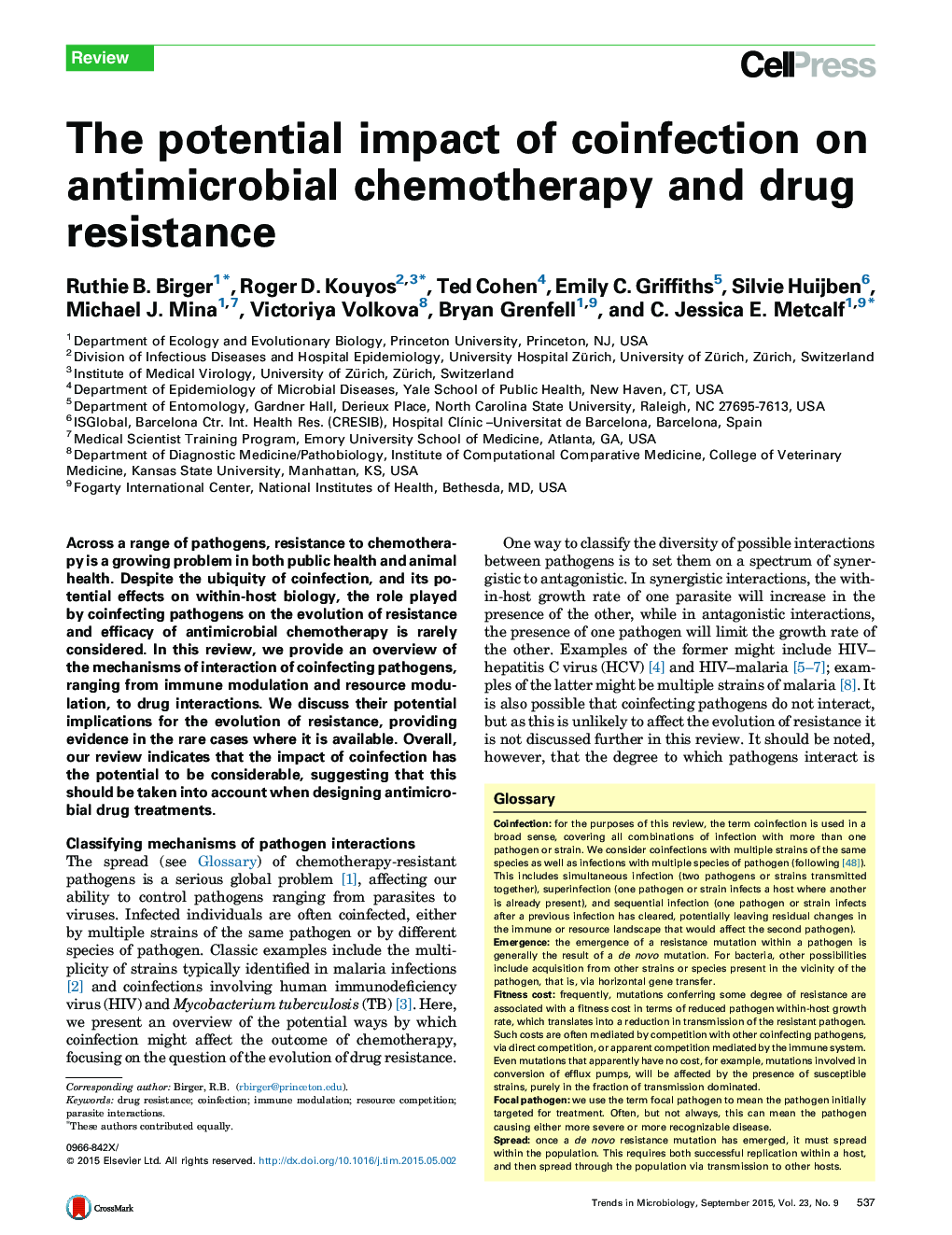| Article ID | Journal | Published Year | Pages | File Type |
|---|---|---|---|---|
| 3421738 | Trends in Microbiology | 2015 | 8 Pages |
•Resistance to antimicrobial chemotherapy is a growing global problem.•Coinfection with multiple pathogens among humans and animals is very common.•The role of coinfection in the dynamics of drug resistance is largely understudied.•We review how coinfection can impact resistance, and we identify future research goals.
Across a range of pathogens, resistance to chemotherapy is a growing problem in both public health and animal health. Despite the ubiquity of coinfection, and its potential effects on within-host biology, the role played by coinfecting pathogens on the evolution of resistance and efficacy of antimicrobial chemotherapy is rarely considered. In this review, we provide an overview of the mechanisms of interaction of coinfecting pathogens, ranging from immune modulation and resource modulation, to drug interactions. We discuss their potential implications for the evolution of resistance, providing evidence in the rare cases where it is available. Overall, our review indicates that the impact of coinfection has the potential to be considerable, suggesting that this should be taken into account when designing antimicrobial drug treatments.
